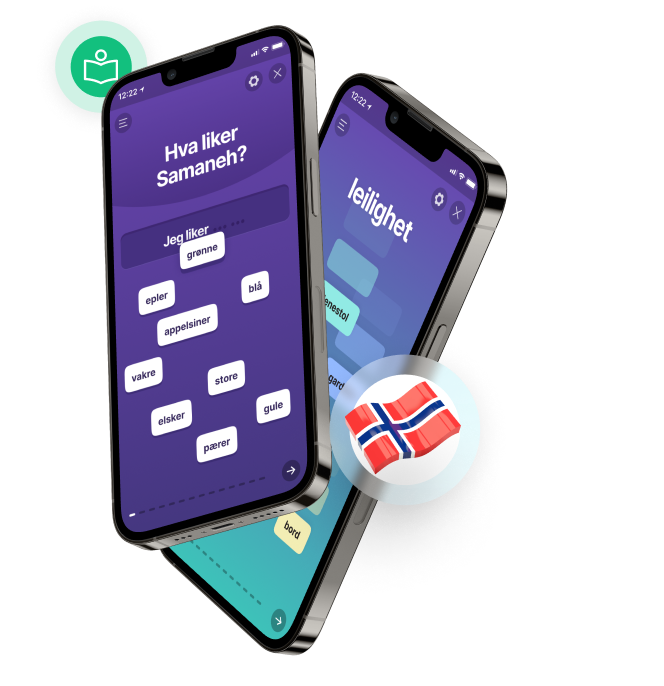The Search for the Shortest Norwegian Words
Part 1
It's not the size that counts...Small words pack the biggest punches in every language. If you are clear on the meaning of the short words in a sentence this will improve your comprehension - in a major way! Let us show you how to use these Norwegian "micro-words" to understand Norwegian more quickly.

In last week's blog post, we discussed how to tackle the long, unwieldy composite words in Norwegian. Get ready to go from from macro- to microcosmos hitting the other end of the spectrum! In a series of blog posts over the next few months we will cover the most essential one-, two and three-letter "function" words in Norwegian.
That means, adverbs, prepositions, conjunctions and subjunctions...These little words are vital for your overall comprehension of what you are reading or hearing. Don't make the mistake of thinking that short words are insignificant next to the more impressive looking verbs and nouns! The fact is :
Short words usually hold the key to the direction, attitude and context of the text you are working on.
Words are not always what they seem
A complicating factor is that many of these short words are homonyms, that is -
Each of these short words can have wildly different meanings and uses depending on context.
What to do the first time you read a demanding text:
1. Underline all the short words.
2. Find out what they mean in THIS context, by reading " around " the short word.
3. Then - and only then - read the whole sentence.
4. Compare all the short words you underlines for similar or different meanings
Here are a few of the most common Norwegian "micro-words":
Da
GEEK FACT: This little word can be either an adverb, a time conjunction or causal conjunction !
Da = When (exact point in time, singular occurence) ,then, as, if so/in that case, because Example: Da hun kom hjem, var middagen ferdig = When she arrived at home, dinner was ready
Da = Then Example: Da forstod jeg alt! = Then I understood everything!
Da = As Example: Møtet ble avlyst da kun to styremedlemmer kunne møte = The meeting was canceled, as only two board members could attend
Da = If so / in that case Example: Studentene får da beskjed om de er kommet inn på universitetet = if so, the students will be notified.../ the students will in that case be notified...
Da = Because Example: Hun kan ikke være tilstede, da hun er forkjølet = She cannot attend as/because she has a cold. Da adds emotional weight
Examples : Men så kom, da! = Come on ! ( impatiently ) Ha det, da! - Bye, then Natt'a ! = Good night, then Det var da helt utrolig! = that was amazing, don't you think? Du kan da vel ikke mene det? = You can't be serious !!
Når
Da vs. Når (GEEK FACT: Youknow the difference between these two!)
- MUST
Da = When in the cases when there's an occurance at a single point in time
Når = When in the cases when there's a habit, a regular occurence , past, present, future.
GEEK FACT: Når can be a conjunction (this word class now includes question words) or an adverb Examples: Når begynner kinoen = When does the movie start? Den begynner når alle er klare = It starts when everyone is readyOm
GEEK FACT: This little word is either a conjunction, adverb or preposition ...
Om = If Example: Jeg vet ikke om jeg klarer dette = I don't know if I can manage this
Om = About Example: Boken handler om barns håp for fremtiden = The book is about children and their hopes for the future
Om = Around Example: Hun hang om halsen på ham = She hung around his neck
That's it for now !
In future blog posts you will find useful tips on Å - the shortest word in the Universe The difference between Og and Å At - sentences Det - the most versatile 3-letter word in the stack... ...and many more Share your feedback, comments and questions in the comment window below !
Would you like to learn more Norwegian?
Sign up today and learn Norwegian with our game-based online language course «Samanehs reise», from beginner level to fluent speaker!
From NOK 375 per måned



